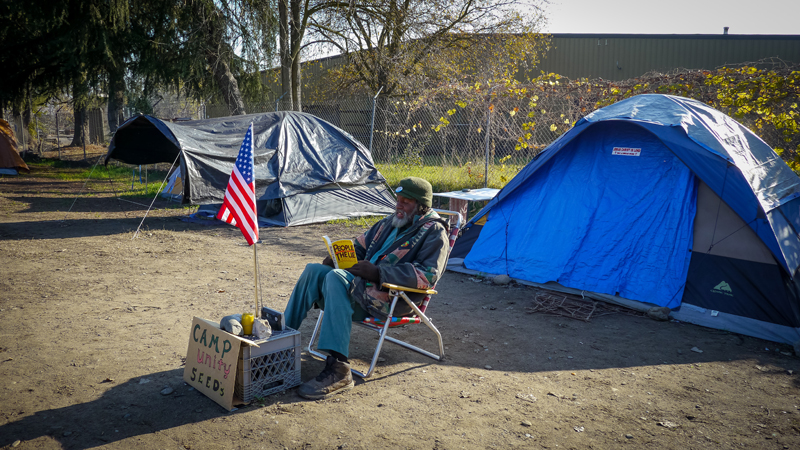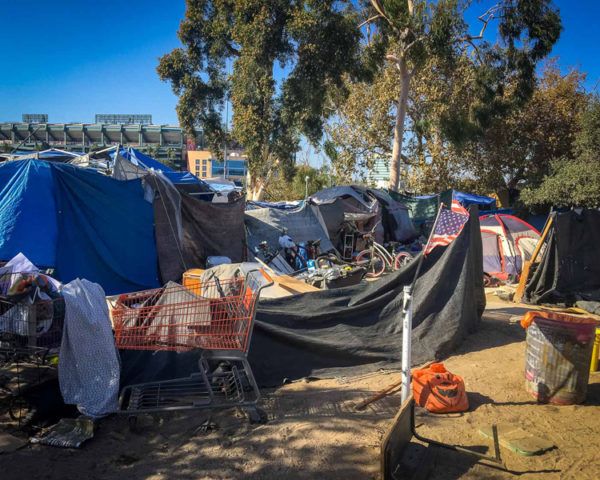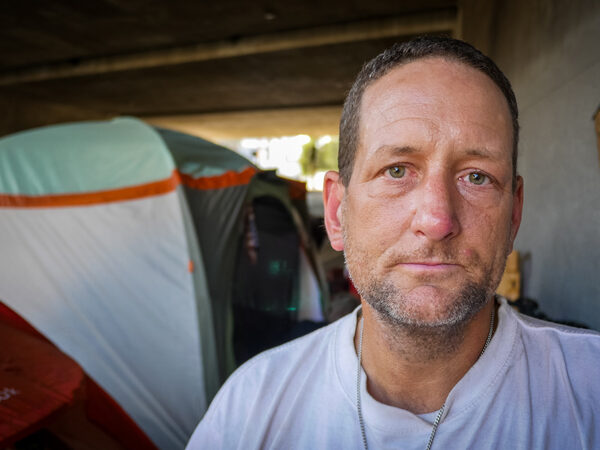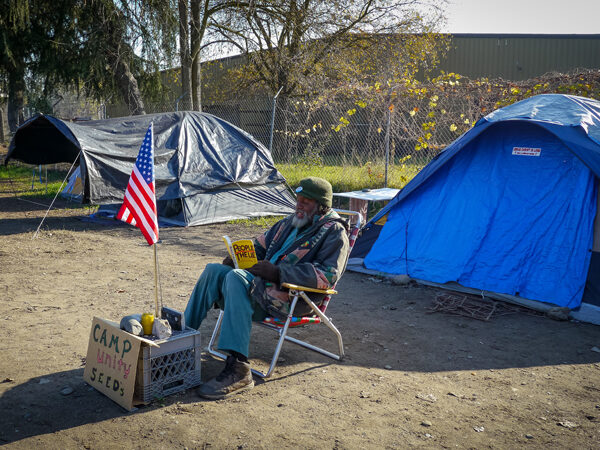Pros and Cons of Tent Encampments
Are tent cities long-term solutions to homelessness? The answer is yes and no—and that there are definitely pros and cons.
There is not enough affordable housing in the U.S. And, there are not enough beds in shelters for each person who is homeless. In addition, some homeless people prefer to live outside or do not want to follow the rules in shelters. Such rules include:
- Requiring an everyday line-up in hopes of getting a bed
- Separating men and women
- Limiting the number of personal belongings allowed
- Forbidding pets
People may also be hesitant to live in close living quarters during the COVID-19 pandemic.
So, what are people to do? When there is a group of homeless people in a certain area, a tent city can seem like the best shelter. But, it gets complicated when you think about who owns the land. If the encampment is on public property like a street or park, residents are subject to city/town laws. Some of these laws prohibit camping or sleeping in public spaces. In response, cities will clear unwanted encampments, sometimes without notice, destroying the shelters and personal belongings of the residents.
Some tent cities are on private property. Not all private property owners or residential and commercial neighbors are supportive. There is often a loud, vocal opposition to tent cities because of their potentially negative impact on the neighborhood and surrounding businesses.
Lack of Amenities, Unhealthy Living Conditions
Living in a tent city often means living without running water, electricity, toilets, sewage and trash removal systems. Not only are these conditions unsanitary, unsafe, and unhealthy for residents, but they are also reasons why cities will clear encampments.
At the same time, living with others experiencing similar situations can be attractive. There is a sense of community where people look out for each other. There can also be an increased sense of safety, more so than one finds living alone or in smaller groups on the streets. During the COVID-19 pandemic, tent encampments can more easily offer social distancing than crowded shelters.
Tent city life is not always safe though. Not everyone looks out for their neighbors. Living in a situation where residents are self-governing and self-policing, as is the case in some encampments, can be good for some, but not for all.
Some cities conduct “sweeps” of tent encampments, causing further trauma to their inhabitants and forcing some to lose contact with needed resources.
Real Solutions to Homelessness
Tent encampments are sanctioned in some cities, like Seattle. Municipalities provide a level of security and stability as well as access to things like showers, toilets, and cooking facilities. Residents also receive assistance with searching for housing and connecting to supportive services. While this may give people a place to sleep that is better than the alternative, it also proves there is a lack of affordable housing, shelters and places for people to turn to during crisis. Tent encampments—sanctioned or unsanctioned—would not exist if the resources necessary to house people were available.
Tent cities may solve the problem of homelessness in the short-run. At the very least, encampments provide a slightly better alternative to sleeping on the street. However, given the disadvantages and sub-standard living conditions, they are not a viable, humane long-term solution. But, until new affordable housing units are built, what can homeless people do?












